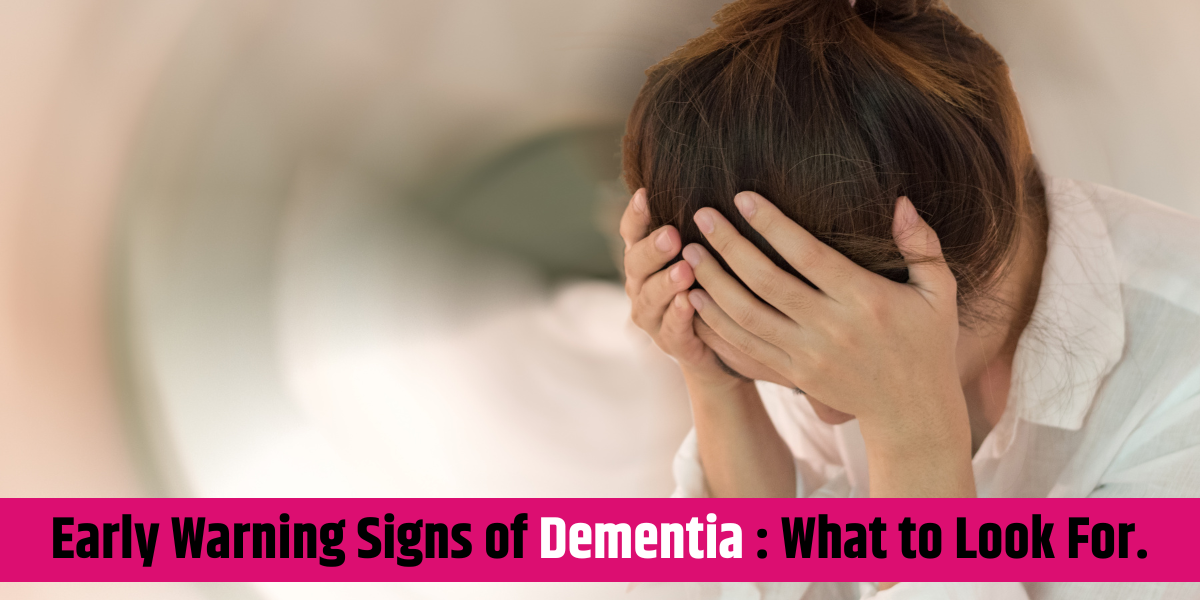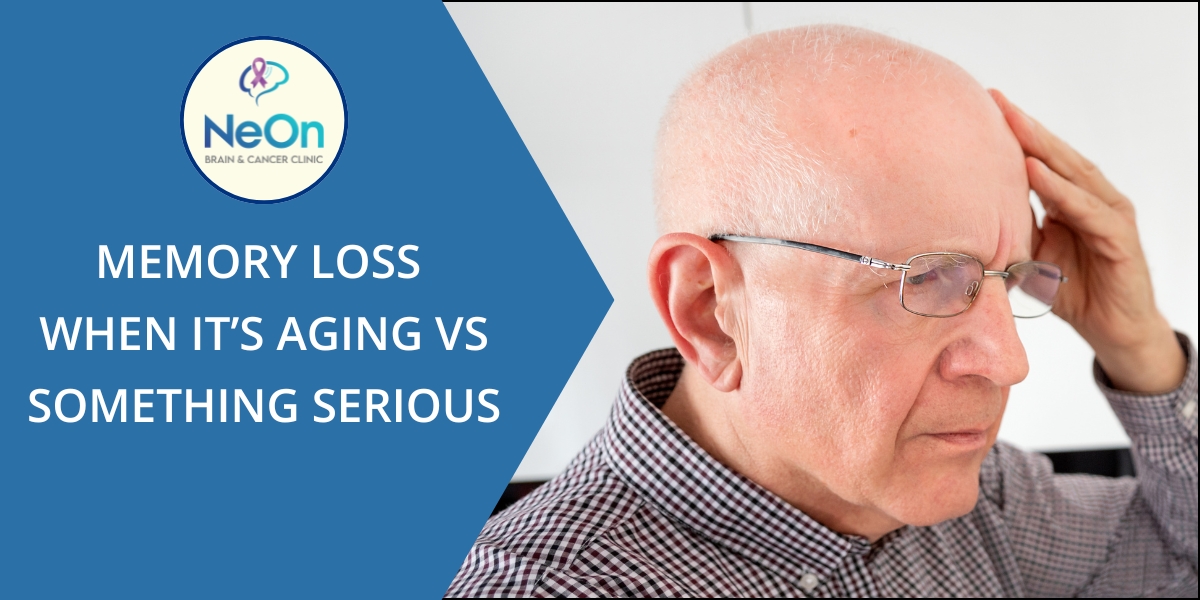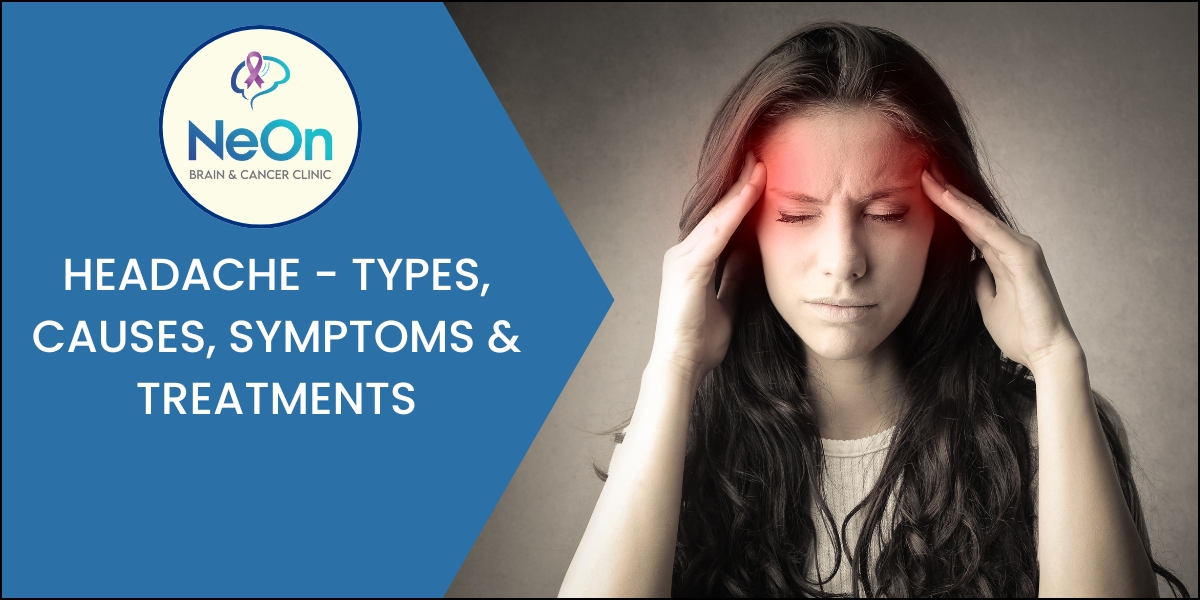Early Warning Signs of Dementia: What to Look For.
Dementia is a progressive condition that affects memory, thinking, and behavior, significantly impacting daily life. Identifying the early warning signs of dementia is crucial for early intervention and support. This guide aims to help you recognize these signs, enabling you or your loved ones to seek appropriate medical advice and care from Dr. Sadique Pathan at the Neon Brain & Cancer Clinic. Understanding what to look for can make a significant difference in managing the condition effectively.
What are the early warning signs of dementia?
Some early warning signs of dementia may include:
Memory Loss: Frequent forgetfulness, particularly of recent events or important dates, can be an early indicator.
Difficulty with Problem-Solving: Struggling to plan or solve problems, such as managing a budget or following a recipe.
Confusion with Time or Place: Losing track of dates, seasons, and the passage of time, or becoming disoriented in familiar places.
Changes in Mood and Personality: Experiencing mood swings, increased anxiety, or withdrawal from social activities that were once enjoyable.
Poor Judgment: Exhibiting poor decision-making skills, such as giving away large sums of money or neglecting personal care.
How can I differentiate between normal aging and dementia?
While some memory lapses are normal as people age, dementia is characterized by noticeable changes that interfere with daily life. If forgetfulness begins to affect the ability to carry out familiar tasks, it’s worth seeking a professional evaluation. Key differences include:
Normal Aging: Occasionally forgetting names or appointments but remembering them later.
Dementia: Forgetting names and events frequently, and not recalling them later.
Are there specific behaviors that signal early dementia?
Yes, certain behaviors may indicate the onset of dementia:
Repetition: Frequently asking the same questions or telling the same story.
Misplacing Items: Putting items in unusual places and being unable to retrace steps to find them.
Withdrawal: Avoiding social interactions and becoming less engaged with family and friends.
What should I do if I notice these signs in myself?
If you notice these signs, it’s important to consult a healthcare professional. Early diagnosis can help in managing the condition more effectively. Steps to take include:
Schedule a Visit: Make an appointment with Dr. Sadique Pathan at the Neon Brain & Cancer Clinic for a cognitive assessment.
Keep a Record: Document changes in behavior or memory patterns to discuss with the healthcare provider.
Involve Family: Discuss concerns with family members to gather additional perspectives and support.
Is there a test for dementia?
There is no single test for dementia; however, healthcare providers may use a combination of assessments, including:
Cognitive Tests: Standardized tests that measure memory, problem-solving skills, and attention.
Medical History Review: Discussion of personal and family medical histories to identify risk factors.
Brain Imaging: Techniques like MRI or CT scans to check for signs of brain injury or degeneration.
Can lifestyle changes help prevent dementia?
While there’s no guaranteed way to prevent dementia, certain lifestyle changes may help reduce risk:
Stay Mentally Active: Engage in puzzles, reading, or learning new skills.
Maintain Social Connections: Stay socially active by joining clubs or participating in community events.
Exercise Regularly: Physical activity can enhance brain health and overall well-being.
Eat a Healthy Diet: Focus on a balanced diet rich in fruits, vegetables, whole grains, and healthy fats.
Recognizing the early warning signs of dementia is vital for taking proactive steps toward managing health. If you or someone you know exhibits these symptoms, seeking professional help from Dr. Sadique Pathan at the Neon Brain & Cancer Clinic for neurology treatment in Hadapsar, Pune is essential. Early intervention can make a significant difference in the quality of life for individuals affected by dementia.
For more information and support resources, consider reaching out to local healthcare providers or organizations specializing in dementia care.



